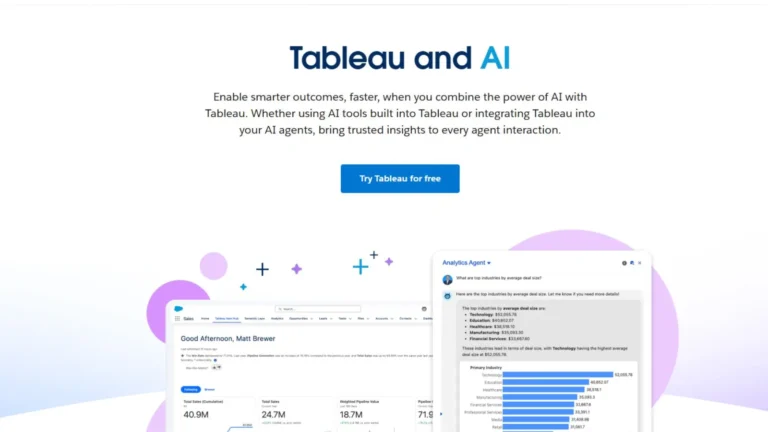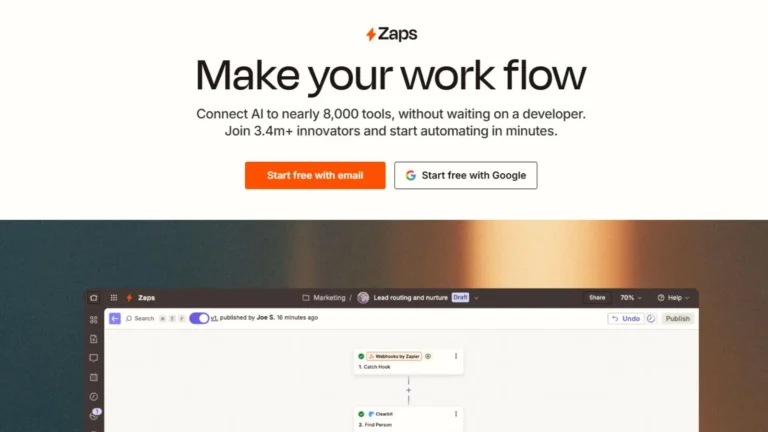What is Rely.io? A Comprehensive Guide to the AI-Powered Developer Portal
Software development teams that manage complex distributed architectures need efficiency together with reliability in the current evolving landscape. Rely.io stands as an advanced technology platform that simplifies service management while boosting development productivity through service ownership promotion across organizations. Through its internal developer portal, Rely.io combines all organizational services and operational features for teams into one integrated environment.
The writer explores Rely.io’s capabilities alongside its main operational features and system advantages, along with its technical shortcomings, which demonstrate its transformative power for engineering work processes.
Key Features
It provides developers with an AI-enhanced platform that serves as an advanced service ownership and reliability optimization solution and efficiency maximization system. Below are its core features:
1. Software Catalog: A Unified View of Services
Services in extensive distributed systems tend to become unmanageable. Through its Software Catalog, developers can monitor all services and user journeys while having full access to a single interface for service management and tracking. Template metadata and dependency information combined with ownership labels and documentation makes it possible for teams to observe their services better, which streamlines maintenance procedures and troubleshooting processes.
2. AI Assistant: Context-Aware Engineering Knowledge
It showcases its AI Assistant as its greatest strength through its ability to learn from the engineering information that organizations maintain internally. Users can quickly get essential information through this tool, which reduces the time needed to find various documents as well as troubleshooting steps and best practice guidelines. The tool assists developers through intelligent functions to help them reach quick decisions, which leads to enhanced productivity levels.
3. Scorecards & Leaderboards: Gamifying Best Practices
It implements scorecards and leaderboards to establish an accountability system that creates engineering excellence throughout the organization. These tools allow teams to:
- Define and enforce best practices
- Track progress across different teams
- Developers obtain motivational power through game elements that encourage them to follow engineering standards
The features enable organizations to track security and reliability benchmarks, which creates a continuous improvement environment throughout the organization.
4. Technology platforms through service reliability management facilitate the assessment and tracking of service quality performance.
Reliability is at the core of modern software engineering. Rely.io offers a comprehensive Service Reliability Management (SRM) toolkit that helps teams quantify, measure, and monitor service reliability through Service Level Objectives (SLOs), alerts, and dashboards.
These tools enable proactive maintenance, ensuring that services meet quality expectations and minimizing downtime.
5. Developer Self-Service: Empowering Engineers
Before Rely.io’s advent, developers used to depend on platform teams to obtain resources and conduct alterations to their platforms. Engineers can use Developer Self-Service on Rely.io for autonomous management of their services and infrastructure that adheres to organizational standards.
The self-service capabilities streamline requests between teams so development timelines are shortened and developers enhance their team’s ownership of their work projects.
6. Seamless Integration: Centralizing Operational Data
It connects with well-known operational tools to automatically gather important monitoring, logging, and operational data in one central location. The system enables developers to avoid transitions between platforms when obtaining system insights. The Rely.io framework supports the normal operation of various common DevOps and observability tools but shows reduced capability to work with specific specialized or outdated systems.
Check these Tool: Ai Fantasy
Pros of Using Rely.io
The features of Rely.io help engineering teams boost their operational efficiency as well as improve their responsibility measures and system reliability. Rely.io offers several excellent advantages that stand out among other services.
Streamlined Development Workflows
The interface of Rely.io facilitates service management by uniting necessary tools that improve development efficiency and service deployment troubleshooting. Complex operational tasks do not distract developers from writing code when they use Rely.io.
Enhanced Developer Experience
It delivers an enhanced developmental experience to developers because its interface, together with artificial intelligence technology, provides smooth assistance. The platform helps engineers rapidly access needed information while enabling them to automate regular tasks and handle service ownership needs easily.
Cultural Shift Towards Ownership
The platform helps teams maintain full responsibility for their services from initiation to completion through its functionality. The culture transformation enables engineers to take charge of their service management activities rather than remaining dependent on central platform teams.
SLO-Driven Release Management
It enables teams to create Service Level Objectives (SLOs) for setting quality criteria that protect against poor release results. Emergency releases of unreliable code become impossible through this prevention method, resulting in fewer system incidents that lead to enhanced customer satisfaction.
Simplified Incident Management
It becomes essential to have all needed information readily accessible whenever incidents take place. Through its single platform, teams can identify and fix issues rapidly, thus decreasing service outages along with system downtime.
Cons of Using Rely.io
The combination of strong capabilities in Rely.io does not always match the requirements of every organization. Here are some potential drawbacks:
Adaptation Period for New Users
The many advanced features in Rely.io require new users to learn its capabilities through an adaptation period before using them effectively. Organization-wide training should be implemented to reach maximum productivity.
Integration Limitations with Niche Systems
The integration support from Rely.io extends to numerous DevOps and monitoring tools but excludes some legacy systems and industry-specific frameworks. Custom infrastructure environments will require extra work for organizations to establish necessary connections.
Resource Intensity for Smaller Teams
Rely.io’s complete feature range exceeds the requirements of small startups. Such teams would probably select less sophisticated platforms since they view Rely.io’s capabilities as excessive for basic requirements.
Who Should Use Rely.io?
Engineering organizations with distributed architecture management should adopt Rely.io to enhance service ownership while improving reliability and developer efficiency, depending on their size and number of engineers. It is particularly beneficial for:
- Site Reliability Engineering (SRE) teams
- Platform engineering teams
- DevOps organizations managing microservices
- Software teams adopting a culture of ownership and reliability
Organizations that embrace software teams that establish both ownership and reliability standards are suitable for Rely.io Small teams along with start-ups should explore less complex software solutions instead of Rely.io because their requirements do not align with the advanced capabilities offered by Rely.io.
Final Thoughts
The platform Rely.io brings game-changing benefits that help teams achieve maximum engineering efficiency as well as improve service reliability and foster team ownership. The combination of a service management hub and AI knowledge tools and gamification features enables developers to create and maintain high-quality services confidently through deployment and operation.
Although Rely.io requires initial learning and integration adjustments, there are strong long-term benefits that exceed initial difficulties because it delivers enhanced workflows along with proactive reliability systems and enhanced developer accountability.
Organizations search for engineering operation enhancement through Rely.io, which provides contemporary AI-based service management capabilities while fostering developer empowerment and achieving reliable service delivery at extensive scales.




